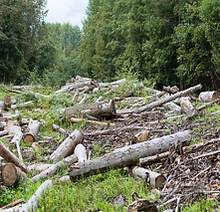
My Profile
Hi, I am Shijia Peng (彭莳嘉). I currently work in the Department of Earth Sciences at the University of Oxford as a Royal Society Newton International Fellow, focusing on community responses to climate change across macroevolutionary scales. I obtained Ph. D degree from Sun Yat-sen University in 2018. I previously worked in the Department of Organismic and Evolutionary Biology, Harvard University and the Institute of Ecology, Peking University.

Climate Changes

Biological Invasions

Land-cover changes
Biodiversity & Macroecology & Conservation Biology
We are experiencing a severe biodiversity crisis. To better understand global biodiversity patterns under the Anthropocene, and how future conservation networks can be optimized to achieve global conservation goals (e.g. CBD 2050 and post-2020) in the future, it is necessary to integrate different sources of ecological, biological and environmental information.
My research is motivated by a need for a better understanding of rules of biodiversity for conservation during the current era of global changes. My research is interdisciplinary, integrating tools and perspectives of macroecology, conservation biology, species distribution modelings, meta-analyses and phylogenetics (see more on research page).
During my post-doc stage in Peking University, I mainly used macroecological theory, combined with phylogenetic comparative methods and conservation planning techniques to explore how climate and land-use change affect species distributions. I mapped the geographical biodiversity patterns of woody species under current and projected future environmental conditions in China. Specifically, I studied the latitudinal patterns in the thermal tolerance, and vulnerability of woody species under projected climate warming in 2050s and 2070s (Peng et al. 2021, Ecography). I assessed the woody species that will be threatened by the 2070s in China and identified priority areas for woody species conservation using various biodiversity facets (Peng et al. 2022, Journal of Applied Ecology). I also completed a project recently investigating the impacts of climate and land-use change on tree of life in China, assessing the effectiveness of the existing protected areas for conserving evolutionary history of woody species (Peng et al. 2022 Proceedings of the royal society B).
Collaborators

Dr. Zhiheng Wang


Dr. Jian Zhang
Dr. Yaoqi Li
Peking University
East China Normal University
Xi'an Jiaotong-Liverpool University

.jpg)

Dr. Huixuan Liao
Dr. Shaolin Peng
Dr. Jessica Gurevitch
Sun Yat-sen University
Sun Yat-sen University
Stonybrook University

Dr. Nicole Kinlock


Dr. Charles Davis
Dr. Aaron Ellison
University of Konstanz
Harvard University
Harvard University
 微信图片_20220610191030 |  微信图片_20220610191014 |  微信图片_20220610191020 |
|---|---|---|
 微信图片_20220610190930 |  微信图片_20220610191026 |  微信图片_20220610190919 |
 微信图片_20220610190845 |  微信图片_20220610190852 |  微信图片_20220610190859 |
 微信图片_20220610190906 |  微信图片_20220610190912 |  微信图片_20220610190924 |
 微信图片_20220610190829 |
